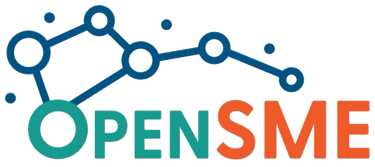Empowering Singapore’s SMEs: Leveraging Government Grants to Accelerate Digital, AI, and Productivity Transformation
Singapore’s small and medium enterprises (SMEs) stand at a pivotal point in their transformation journey. As technology reshapes industries and AI redefines competitiveness, the nation’s progressive ecosystem of grants and subsidies—led by Enterprise Singapore, IMDA, AI Singapore, and other agencies—provides the critical support needed to modernise operations, automate workflows, and scale innovation responsibly.
4 min read


We explore the range of financial and capability-building schemes available to SMEs—from the Productivity Solutions Grant (PSG) for off-the-shelf digital tools, to the Enterprise Development Grant (EDG) for deeper transformation projects, and AI Singapore’s initiatives for AI adoption and technical capability transfer. It outlines who provides these schemes, their eligibility criteria, funding limits, and practical strategies for aligning them with business priorities.
Beyond funding mechanics, the paper argues that grants are not merely subsidies but catalysts for strategic renewal. When used effectively, they allow SMEs to experiment with emerging technologies, integrate AI components securely, upskill their workforce, and strengthen governance—without overstretching budgets. The result is a more agile, data-driven, and competitive SME sector positioned to thrive in a rapidly digitalising regional economy.
Core grants and who provides them
Productivity Solutions Grant (PSG) — administered by Enterprise Singapore (with many pre-approved solutions listed by IMDA under SMEs Go Digital). PSG supports adoption of pre-scoped IT solutions and equipment (off-the-shelf software, hardware, and related implementation). Support level: up to 50% of eligible costs, with common caps around S$30,000 for many solution categories. Eligibility typically requires a Singapore-registered company that meets the SME definition and minimum local shareholding rules. Enterprise Singapore+1
Enterprise Development Grant (EDG) — run by Enterprise Singapore for transformation projects (business strategy, innovation, digitalisation and capability development). EDG funds development and adoption of customised solutions and transformation programmes. Support level: up to 50% of qualifying costs for SMEs; some sustainability-related projects can receive up to 70% support (time-bound enhancements apply). Applications are project-based and assessed for impact and feasibility. Enterprise Singapore+1
AI Singapore (AI.SG) — T-Up (Technology for Enterprise Capability Upgrading) — AI.SG’s programme to strengthen firms’ AI capability by subsidising secondment of AI engineers and technical support for product/process AI adoption. Typical features: secondment support (usually 1 year) and hands-on technical help to produce an AI proof-of-value with the expectation of knowledge transfer and potential hires thereafter. (Programme windows and availability are time-bound; check current calls.) AI Singapore
SkillsFuture Enterprise Credit (SFEC) — administered/coordinated through EnterpriseSG / SkillsFuture ecosystem: a lump-sum credit historically S$10,000 to help defray costs of workforce development and productivity improvements (check current operational model and disbursement rules — SFEC has seen redesigns and extensions). Eligibility depends on employment/SDL contribution history and prior notifications to qualifying employers. Enterprise Singapore+1
MAS / FinTech grants and experiment schemes — Monetary Authority of Singapore runs targeted grants and proof-of-concept sandboxes for financial sector innovations. For eligible fintech experiments, MAS has historically supported pilots with grants up to hundreds of thousands of dollars (examples cite up to S$400,000) depending on scope and regulator objectives. These are sector-specific and require clear public-good/industry benefit. Monetary Authority of Singapore
SGInnovate / Startup SG / Deep-tech support — for startups or firms building deep-tech/AI products: co-funding for talent programmes, R&D support and incubation partnerships. SGInnovate has offered co-funding (e.g., up to ~70%) for talent/stipend programmes and other support for deep-tech scaling. Exact amounts depend on the specific programme. SGInnovate+1
Digital Resilience Bonus (DRB) and other sectoral top-ups — time-limited bonuses and sector programmes (for example retail/F&B digital milestones) have offered up to S$10,000 for meeting digital adoption milestones. Check scheme-specific criteria and cut-off dates. OCBC+1
Common eligibility and practical checkpoints
Typical SME definition used across schemes: group annual turnover ≤ S$100 million OR group employment size ≤ 200 employees. Many grants also require ≥30% local shareholding and that the business be registered and operating in Singapore. Specific schemes add project-specific criteria (e.g., pre-approved solution list for PSG, project plan and consultant for EDG). Always confirm scheme-specific documentation requirements before you apply. Enterprise Singapore+1
Why SMEs should actively leverage these schemes
Reduce cash barriers to experimentation. Co-funding shrinks the capital required to test AI pilots, POCs or cloud migrations — letting SMEs validate value before committing large budgets.
Accelerate capability build-up. Programmes like T-Up provide technical secondees and knowledge transfer so SMEs can internalise AI skills faster than hiring cold.
De-risk transformation. Grants lower the financial downside of change and can fund proof-of-value work that convinces stakeholders (management, customers, lenders) to back scale-up.
Improve competitiveness and productivity. Grants are explicitly designed to finance productivity-boosting tools (automation, analytics, digital workflows) that reduce operating cost per unit and raise service levels.
Access to networks and regulatory support. Many schemes come with ecosystem access (regulators, talent pipelines, pre-approved vendors), which helps SMEs move beyond vendor shopping to strategic capability building.
Preferential support for sustainability / strategic priorities. When projects align to national priorities (sustainability, cyber resilience, industry transformation), higher support rates or priority processing may apply.
How to approach
Map needs to scheme type: use PSG for pre-scoped, off-the-shelf solutions (accounting, CRM, HR, POS, basic analytics); use EDG for bigger, bespoke transformation projects (systems integration, custom data platforms, organisation redesign); use T-Up / AI.SG for AI talent secondment and proof-of-value work. Enterprise Singapore+2Enterprise Singapore+2
Check SME and shareholding criteria early. Confirm group turnover / employment and local shareholding thresholds before you start time-consuming proposals. Enterprise Singapore
Use pre-approved vendor lists when possible. PSG and IMDA both run lists of approved solutions — that speeds approval. For custom work under EDG, engage an experienced consultant who understands grant deliverables and milestones. GoBusiness+1
Document the business case: grants require clear KPIs (productivity uplift, cost savings, revenue impact, jobs created). Quantify expected gains and how you will measure them.
Plan cashflow and matching contribution: grants are co-funding — ensure you can pay upfront vendor invoices and submit claims on schedule.
Explore stacked support: some projects can combine capability and wage subsidies, SFEC credits usage, and sectoral bonuses — but confirm with the Business Grants Portal/agency to avoid double-funding breaches.
Keep compliance and reporting tight: track milestones, deliverables and receipts; good governance makes follow-on funding or future schemes easier.
Final notes and where to check
Disclaimer: Government programmes evolve (new windows, expiry dates, special top-ups).
For authoritative, current details and to apply: Enterprise Singapore’s PSG and EDG pages and the Business Grants Portal, IMDA’s SMEs Go Digital lists, AI.SG for AI-specific programmes, MAS for fintech experiments, and SGInnovate / Startup SG for deep-tech support are the primary starting points. Key landing pages and recent scheme summaries were used in this note.
© OpenSME Pte Ltd.
